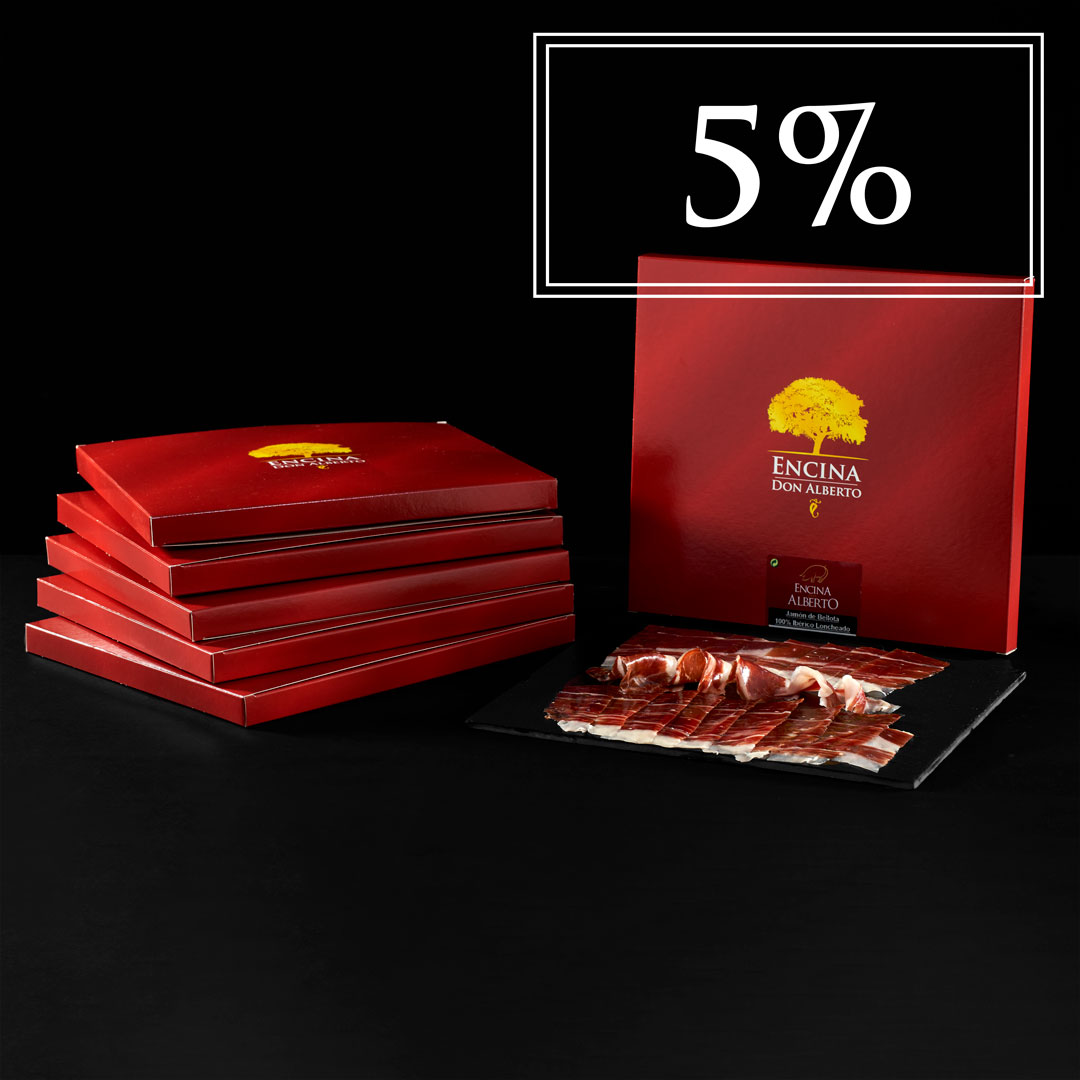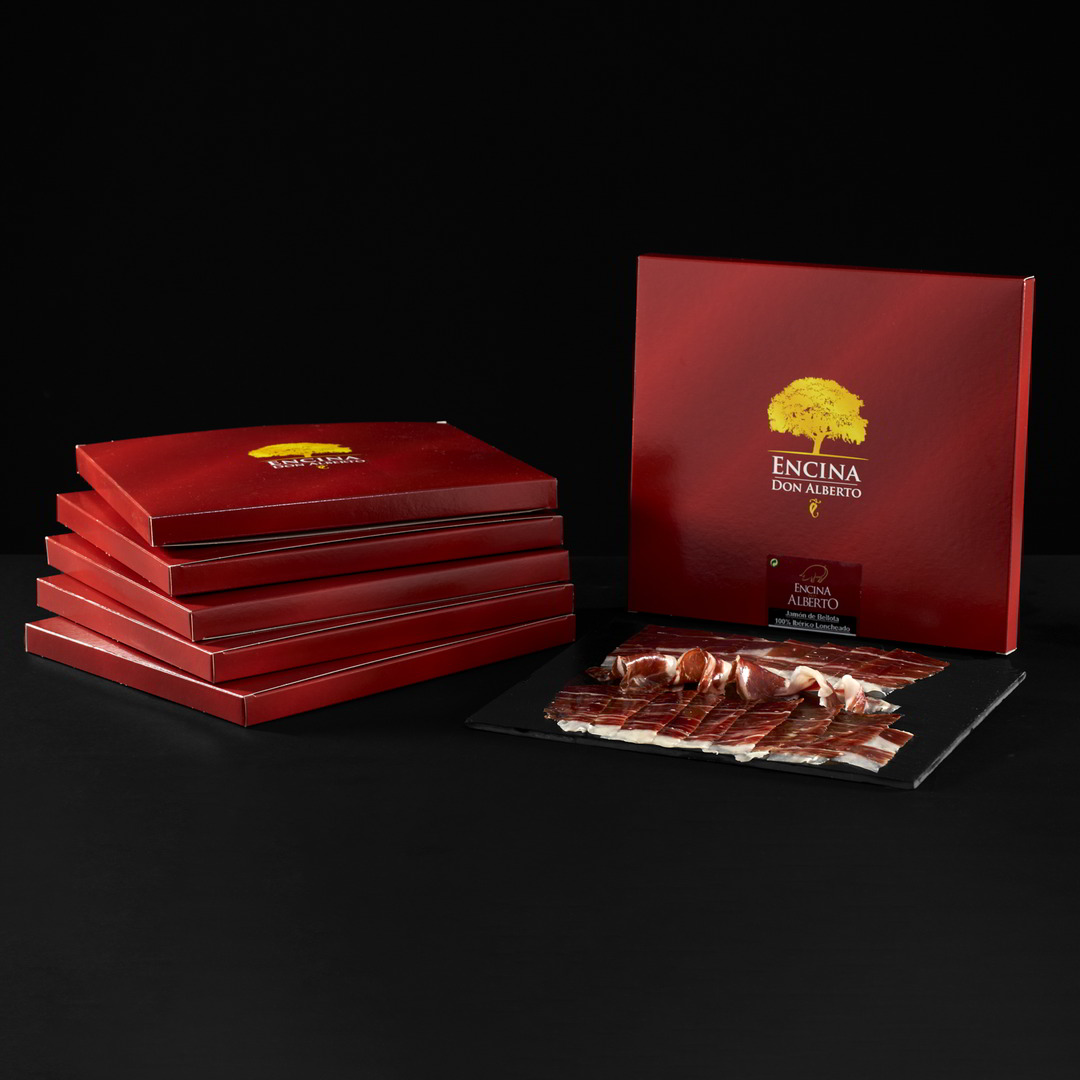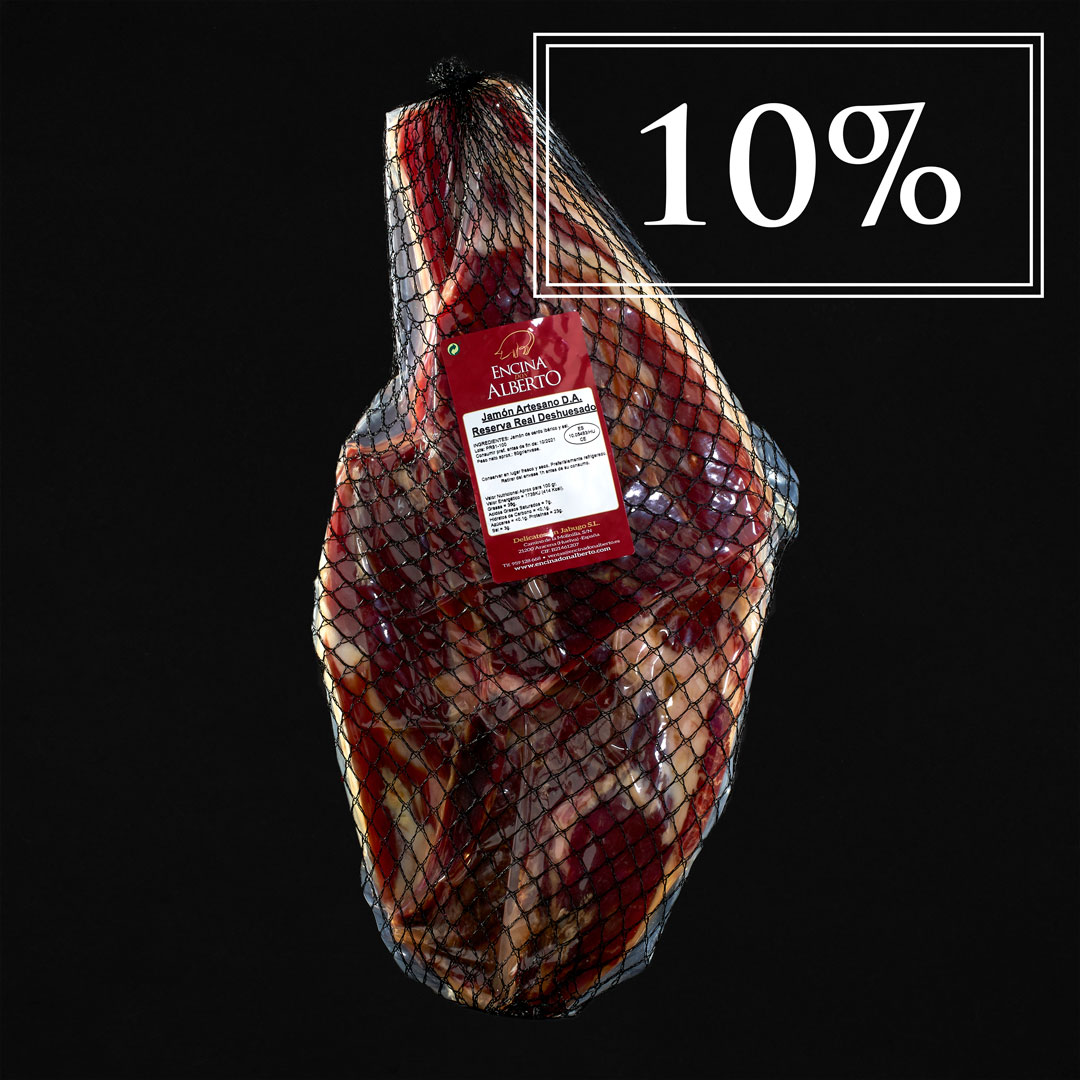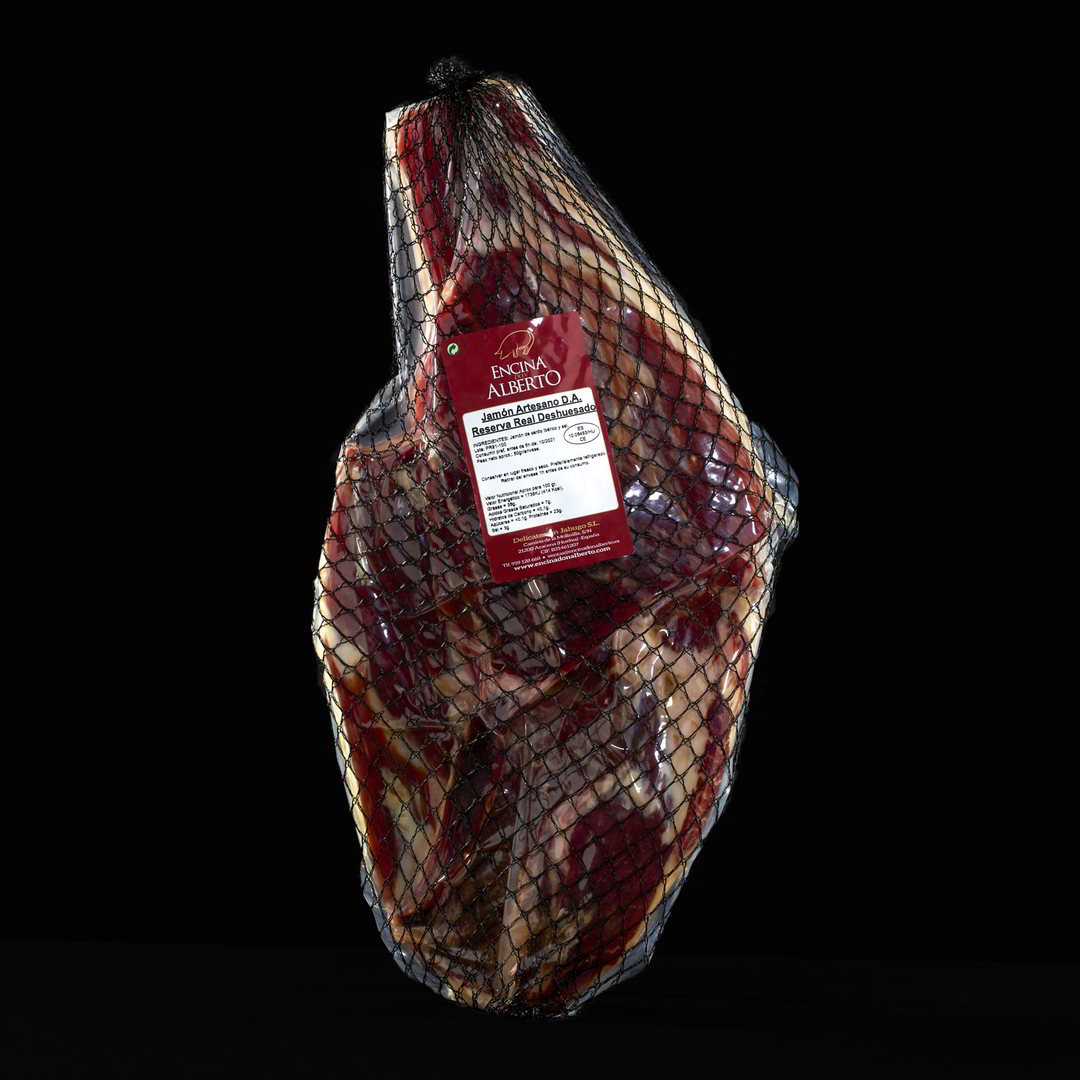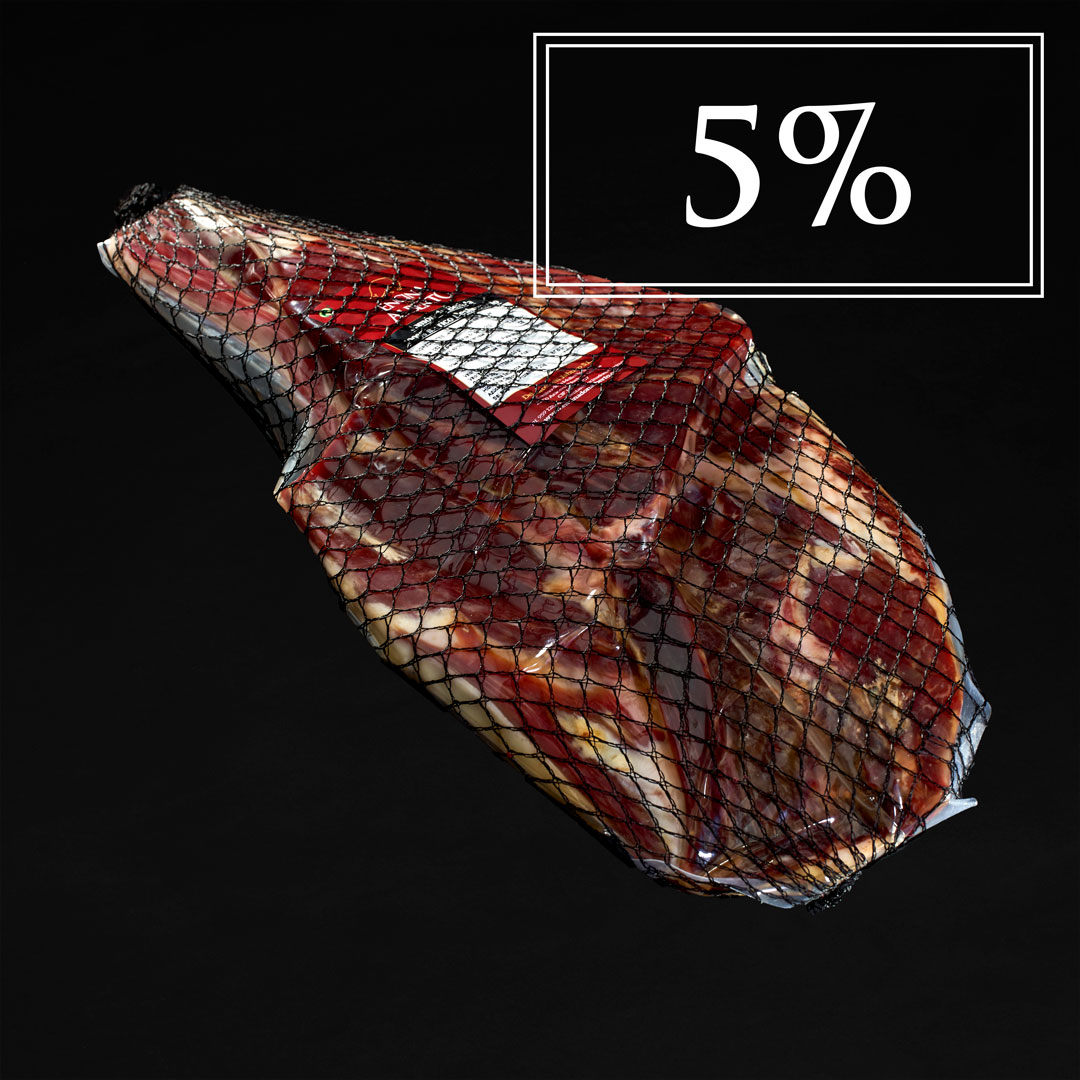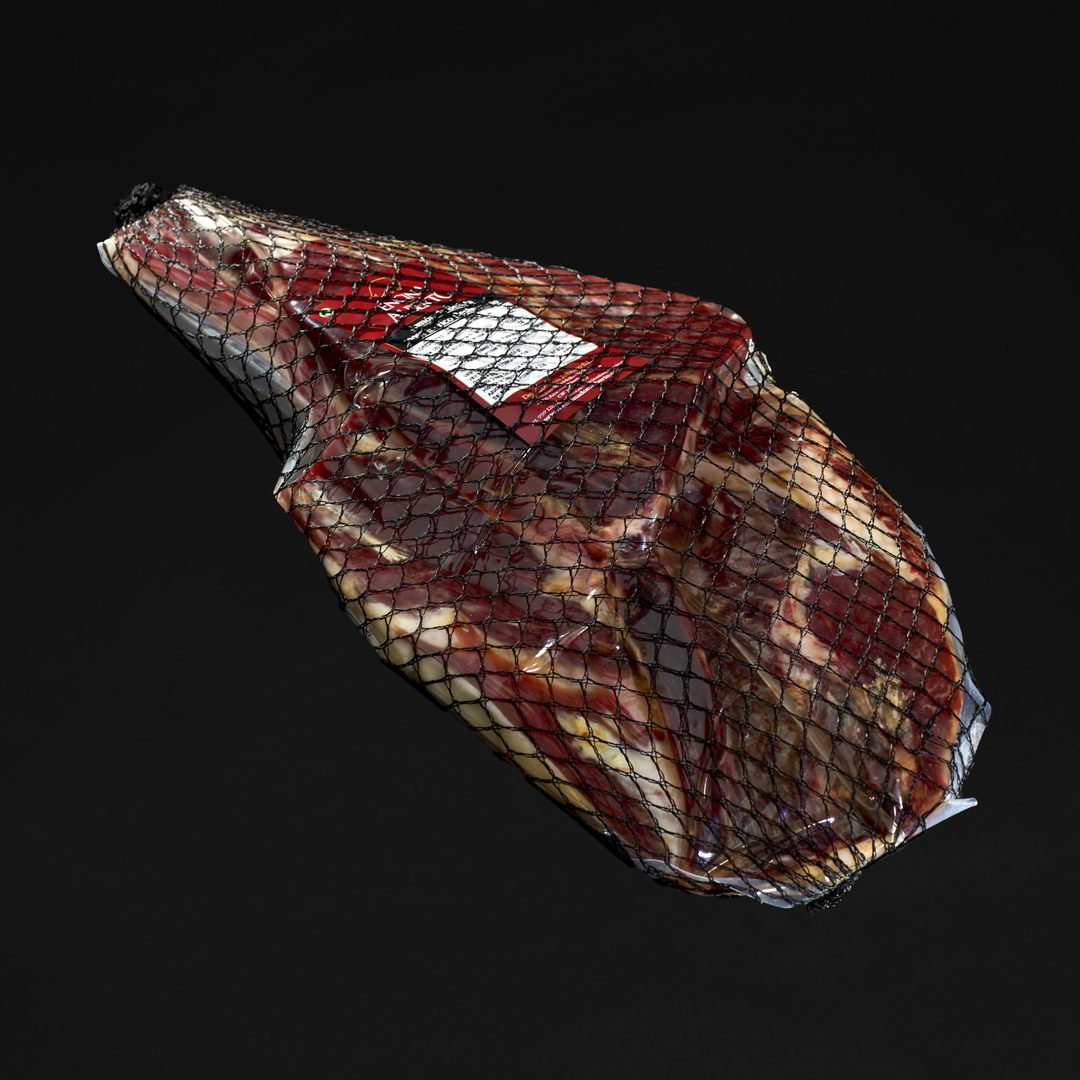PLACEMENT, KNIVES ...
How to cut Ham
The tasting of a good Iberian ham begins with the ritual of the cut which should be made in very thin slices, almost transparents, that melts in the mouth spreading all their aroma and flavor. The spread and fragant meat of an Iberian pig ham well cut slips in the palate leaving behind itself an exquisite aroma.
UPWARDS
1. Placement
Ham must be placed in a table of cuts with the hoof upwards. In the piece several zones are distinguished; cane, ‘jarrete’, ‘maza’, ‘contra’ and ‘babilla’. So the same ham offers a variety of flavors according to the zone where its slices are extracted from.
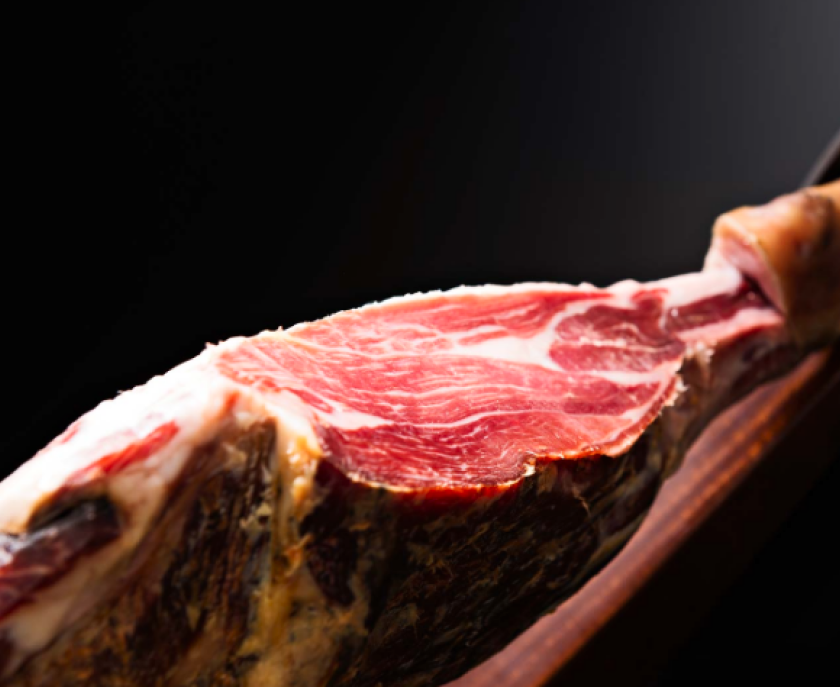
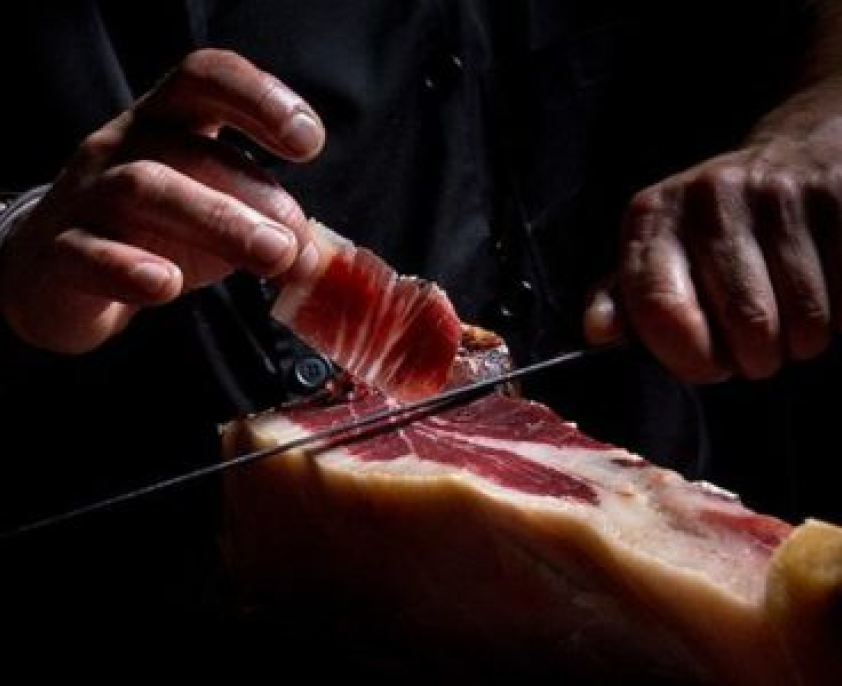
THREE TYPES
2. Knives
Three kind of knives are needed:
- One with wide blade of kind of a machete.
- Another long and flexible of kind of a ‘jamonero’.
- And a third short and strong of kind of a ‘puntilla’.
- The ‘chaira’ will serve to seat their cutting edges.
With the wide knife we made a deep cut in the cane and retire the rind and outer fat.
RIND, BACON...
3. What to remove
If we are going to consume the piece in a single day, all the rind and the outer fat will be removed, peeling the ham. Else, it will be cleaned and outlined as it is cut.
From the first cut, with the jamonero knife, we begin extracting slices from the ‘maza’, which is the thickest part of the piece. Slices must be small, as thin as it is possible and they will be extracted with a straight cut.
The edge of ham must be clean and well formed. In this way are avoided unnecessary rinds and rancid flavors. If we stop cutting it is necessary to protect the zone with some of the pieces of fat and extracted rinds.


INCISOR CUT
4. The bone area
When we get to the hip bone we should made an incisive cut, around it, with the ‘puntilla’. This way, the next slices will leave free from this zone. The cut continous the straightest way possible. In the lower part it can be done in inverse direction until equaling the level.
In the joint zone of the femur with the kneecap, are extracted slices only from the part next to the hip bone. The ‘jarrete’ or upper part is for the end.
BY THE STIFLE
5. Turn the Ham
We turn the ham to continue cutting the ‘babilla”. The cut continues in the lower part of the back always with small and thin slices.


WITH THE LACE
6. The Jarrete
Finally the ‘jarrete’. With the ‘puntilla’ is extracted the piece located between both bones. The cut will be made in delicious cubes.
The bone of ham is a good ingredient to give flavor to the stew. So you will may make the most of all the flavor a unique product. The Iberian ham Encina Don Alberto.
